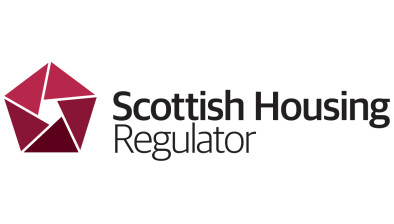RSLs well-placed to brace significant finances challenges ahead

The aggregate financial performance of Scotland’s Registered Social Landlords (RSLs) remains robust and will help them to meet the many and significant challenges that lie ahead, a report published today by the Scottish Housing Regulator (SHR) has found.
The Regulator’s report is the outcome of its national analysis of the finances of RSLs for the year 2020-21.
According to the report, most landlords moved at pace to adapt to the new and challenging operating environment in which they found themselves.
SHR’s analysis for 2020/21 is that RSLs have achieved this whilst generally delivering a robust financial performance, backed up by strong liquidity. The report’s highlights include:
- Turnover RSLs increased aggregate turnover by 0.6% to just over £1.80 billion in 2020/21. Affordable lettings income went up by 0.5% to £1.59bn, contributing 88% of turnover.
- Surplus RSLs reported an aggregate surplus of £309.8 million for the year to 31 March 2021, showing a continuation of the upward trend of recent years. The net margin increased from 14.0% in 2019/20 to 17.2% in 2020/21.
- Available Cash RSLs increased cash balances significantly in 2020/21, up £155.0m (18.5%) to £990.6m. Quarterly COVID-19 returns submitted during 2021/22 show an overall reduction in cash balances across the year, dropping to £928.6m at 31 March.
- Cash Generated RSLs maintained a strong financial position at the end of 2020/21, with cash generation up £102.4m to £626.6m, and interest paid on debt down £9.6m to £181.6m.
- Interest Cover Increases in operating margins caused a 23-percentage point rise in EBITDA MRI interest cover (Earnings before interest, taxation, depreciation & amortisation, major repairs included), which was up to 285% for 2020/21.
- Housing Investment RSLs continued to invest in new and existing homes, with net housing assets up £406.0m (3.0%) to £14,060.5m during 2020/21. That said, levels were below those forecast as a consequence of pandemic related restrictions.
- Borrowing RSLs increased available debt facilities to £6.41bn at 31 March 2021, of which £5.36bn has been drawn down, with a balance outstanding of £4.71bn. Whilst RSLs agreed new facilities of £0.66bn in 2020/21, a drop in spend in the year meant available undrawn facilities of £1.05bn at 31 March 2021. This, and increased cash balances, means sector liquidity remains strong. Borrowing is set to further increase with a forecast requirement for an additional £1.3bn over the next five years to fund investment in new and existing homes.
- Rents & Inflation In aggregate, rent increases were above CPI inflation in 2020/21. Aggregate rents are projected to increase by more than inflation for the majority of the next five years; however, many RSLs have moderated their rent increases down for 2022/23 in response to the circumstances brought about by the pandemic and other economic challenges.
- Voids, Arrears and Bad Debts Voids, arrears and bad debts at 31 March 2021 either remained around the previous years’ levels or showed some improvement, demonstrating the positive impact of the work done by RSLs to mitigate these. RSLs are also forecasting reductions over the next five years.
- Pensions The move to defined contribution (DC) schemes by RSLs who previously offered only defined benefit (DB) schemes has continued, but at a slower rate than in previous years. There are now 77 RSLs who only provide a DC scheme for employees, up from 69 in 2019/20.
Shaun Keenan, assistant director of financial regulation, said: “Our annual analysis shows RSLs’ finances remain robust.
“That said, the financial pressures on RSLs – and tenants – are significantly greater than in recent times and are only going to increase in the coming year. RSLs need to understand these risks and pressures and have adequate financial headroom that allows them to handle what is ahead. The biggest challenge will be to do this while keeping rents at a level tenants can afford.”
Read the National Analysis of the Finances of Registered Social Landlords






